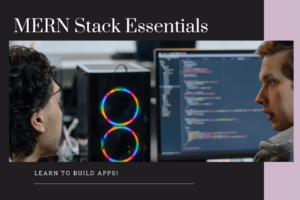
How To Begin My Career in Power BI as a Fresher?
#1 Myinstitutes.com is one of the Best Educational Portal and Training Institutes in MYSORE, MANGALORE, and BANGALORE.
How to Begin Your Career in Power BI as a Fresher
In today’s data-driven world, businesses rely heavily on insights derived from their data to make informed decisions. Power BI, a leading business intelligence (BI) tool developed by Microsoft, has become a top choice for companies looking to visualize data, create dashboards, and generate detailed reports. As a fresher, stepping into the Power BI domain offers vast opportunities in analytics and business intelligence. Here’s an in-depth guide to help you start your career in Power BI:
1. Understand the Basics of Power BI
Before diving into Power BI, it’s essential to grasp the tool’s purpose and why it’s so widely used:
- What is Power BI? It’s a suite of tools for data analysis, interactive visualization, and sharing insights. It consists of components like Power BI Desktop, Power BI Service, Power BI Report Builder, and Power BI Mobile.
- Why is Power BI Popular? Its ease of use, integration with Microsoft products, and strong analytical capabilities make it one of the most in-demand BI tools in the market.
As a fresher, start by understanding its role in decision-making processes and the types of industries leveraging Power BI, such as finance, healthcare, e-commerce, and more.
2. Learn the Core Features of Power BI
To get started, familiarize yourself with the core functionalities of Power BI:
- Power BI Desktop: The primary development tool for creating datasets, reports, and visualizations.
- Power Query: Learn how to clean, transform, and shape raw data into a usable format.
- Data Modeling: Understand the concepts of relationships, hierarchies, and calculated columns.
- DAX (Data Analysis Expressions): These formulas allow you to create advanced calculations and measures.
- Visualization Tools: Master the art of creating charts, graphs, and dashboards that tell a compelling story.
- Power BI Service: Use this platform to publish, share, and collaborate on reports in a secure environment.
3. Build a Strong Foundation in Relevant Skills
A career in Power BI is not just about knowing the tool; it requires complementary technical and analytical skills:
- Basic Database Knowledge: Gain an understanding of databases and querying with SQL (Structured Query Language).
- Data Visualization Principles: Learn the best practices for presenting data effectively, such as choosing the right type of visualization for your data.
- Critical Thinking and Problem-Solving: Practice analyzing data to uncover trends, patterns, and insights.
- Microsoft Ecosystem Familiarity: Since Power BI integrates seamlessly with Excel, Azure, and SQL Server, knowing these tools can give you an edge.
4. Leverage Free and Paid Learning Resources
As a fresher, numerous online resources can help you gain proficiency in Power BI. Some popular platforms include:
- Microsoft Learn: Offers free Power BI tutorials and guided learning paths.
- YouTube Channels: Many experts share beginner-to-advanced level content for free.
- Coursera and Udemy: Provide affordable, structured Power BI courses with certifications.
- Community Blogs and Forums: Engage with platforms like Power BI Community, Reddit, and Medium for tips and tricks.
Make sure to stay consistent with your learning and apply the knowledge gained to practical projects.
5. Practice Hands-on Projects
To truly master Power BI, hands-on experience is critical. Practice with real-world datasets available online on platforms like Kaggle, Google Dataset Search, or Data.gov.
- Create Sample Reports and Dashboards: Start with small projects, like visualizing sales data or creating expense dashboards.
- Participate in Challenges: Platforms like Makeover Monday and Power BI User Groups host challenges that provide practical scenarios to solve.
- Simulate Business Scenarios: Assume the role of a data analyst and create actionable reports for specific industries such as retail, healthcare, or finance.
6. Obtain Relevant Certifications
Certifications add credibility to your skills and boost your chances of landing a job. Microsoft’s Power BI Data Analyst Associate Certification is one of the best certifications to validate your expertise in Power BI. Additionally:
- Learn about PL-300 (Exam for Power BI), which tests skills in data preparation, modeling, and visualization.
- Explore other related certifications like Microsoft Certified: Azure Data Fundamentals if you plan to advance in the data domain.
7. Build a Portfolio
Employers often look for practical evidence of your skills. Create a strong portfolio that demonstrates your expertise. Include:
- Sample dashboards and reports you’ve created.
- Case studies detailing the insights and decisions derived from your visualizations.
- Detailed steps explaining your data analysis process.
Host your projects on platforms like GitHub, Tableau Public, or even create a personal website to showcase your work.
8. Search for Entry-Level Job Roles
Look for job titles like:
- Power BI Developer
- Data Analyst
- Business Intelligence Analyst
- Reporting Analyst
Customize your resume to highlight Power BI projects, certifications, and any internships or coursework related to data analytics. Tailor your cover letter for each application by showcasing your passion for BI and data visualization.
9. Network and Stay Updated
Networking can accelerate your career growth. Attend webinars, workshops, and Power BI User Group meetups. Join LinkedIn groups and connect with professionals in the field. Additionally:
- Follow Power BI influencers and blogs.
- Stay updated on new features and releases by keeping an eye on Microsoft’s updates and Power BI newsletters.
Final Thoughts
Starting a career in Power BI as a fresher requires commitment, curiosity, and a willingness to learn. By building a strong foundation in technical skills, gaining hands-on experience, and staying consistent with your efforts, you can establish a successful career in this exciting field. With the right approach and resources, you’ll soon be ready to create impactful dashboards, uncover valuable insights, and help businesses make data-driven decisions.
Embrace the journey, and good luck with your Power BI career!



